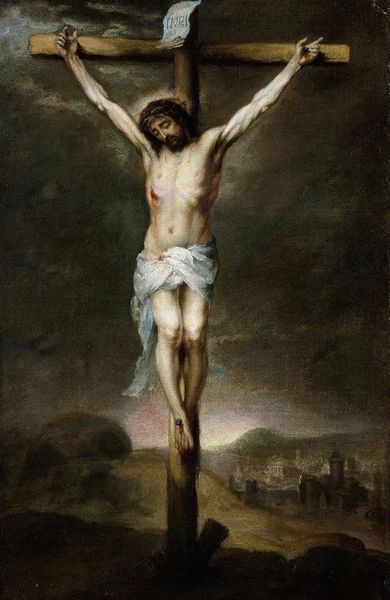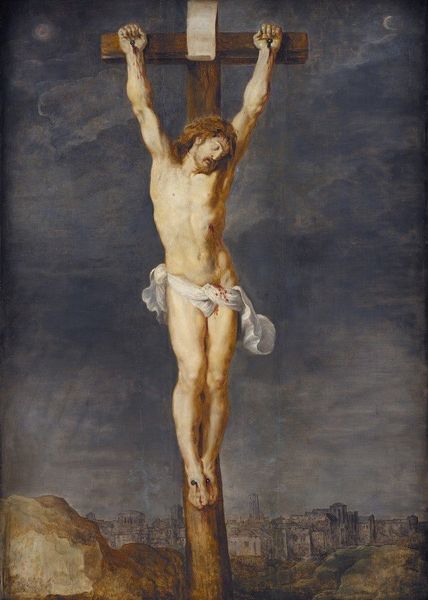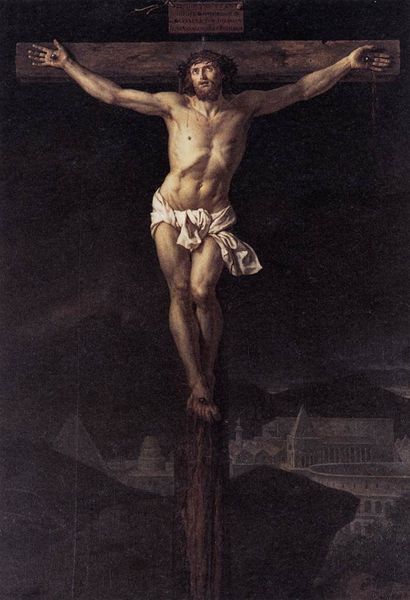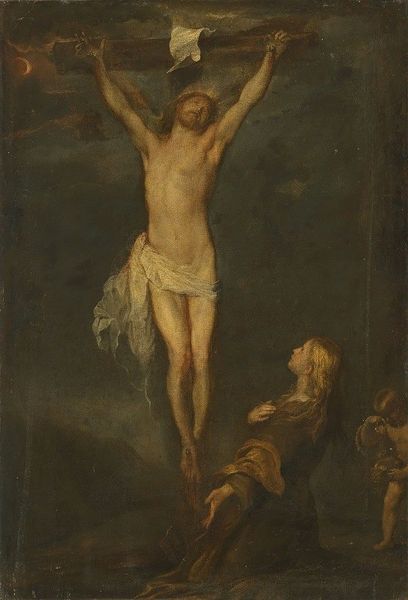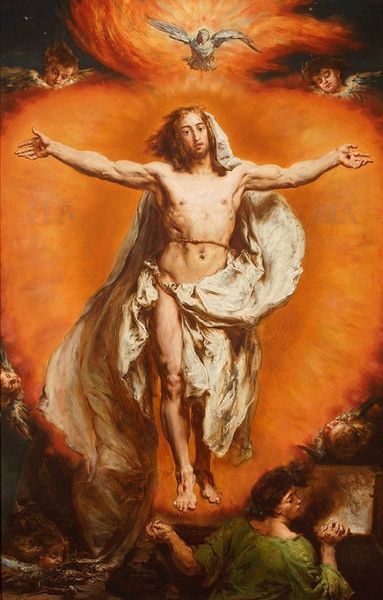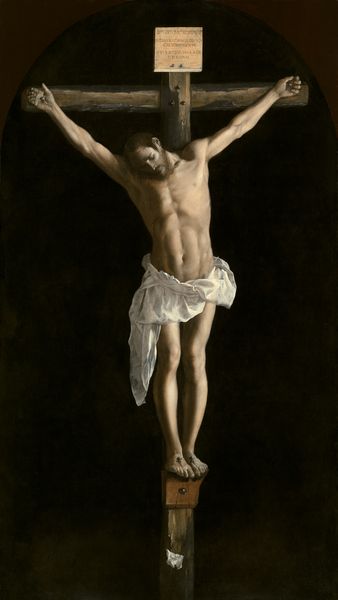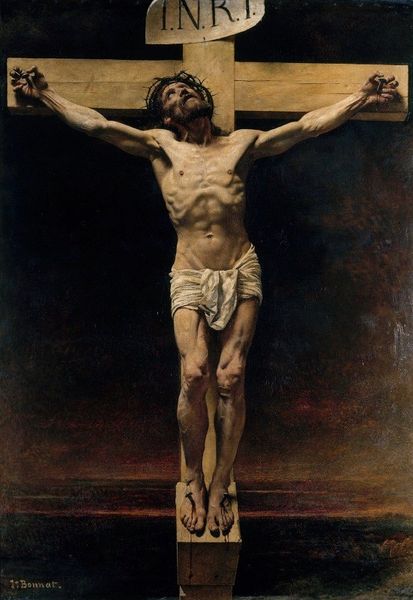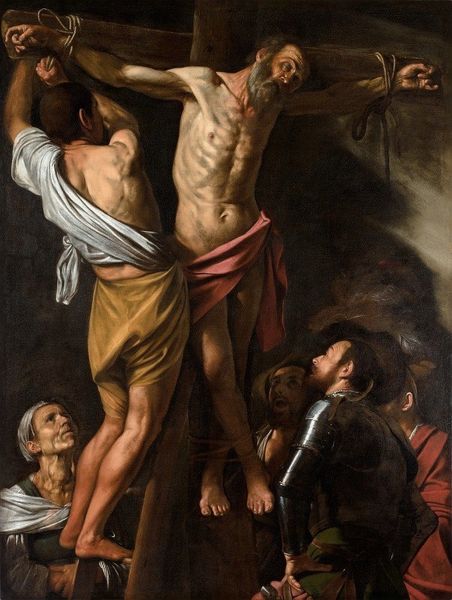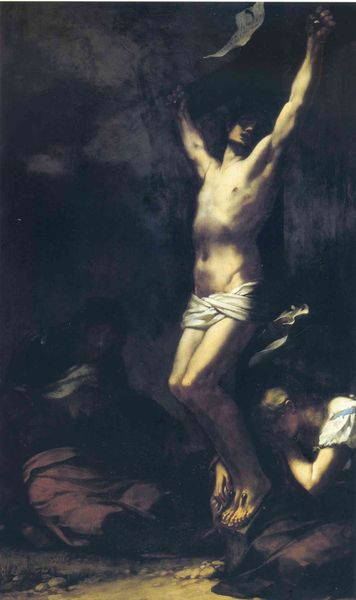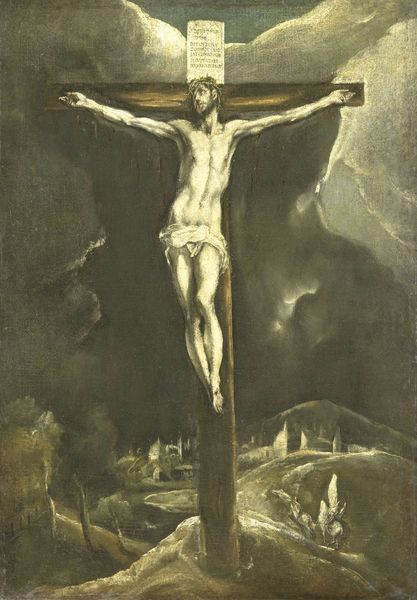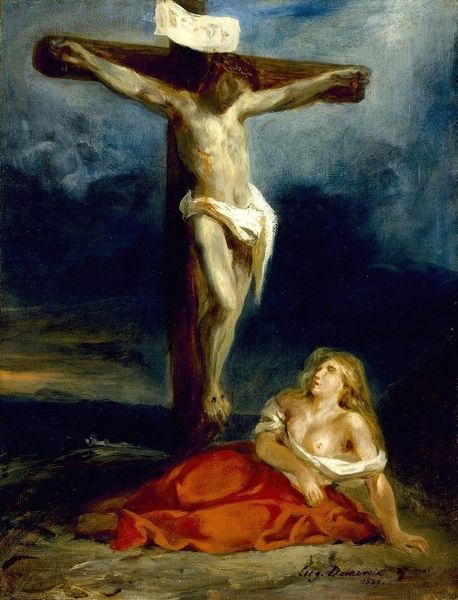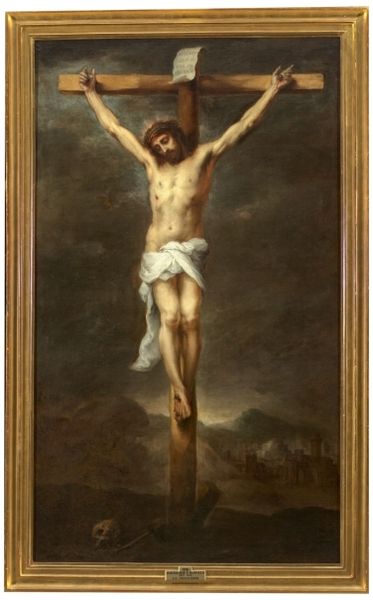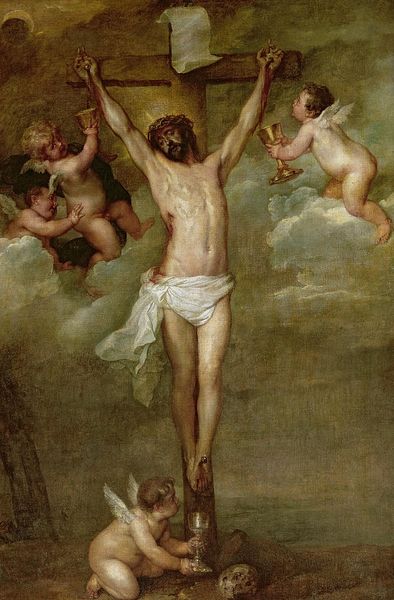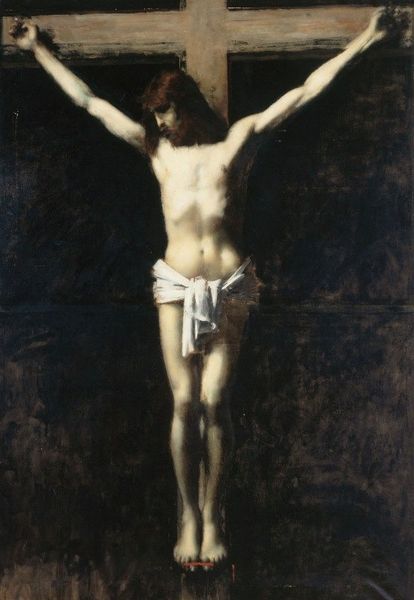
oil-paint
#
baroque
#
oil-paint
#
figuration
#
crucifixion
#
history-painting
#
nude
#
realism
Copyright: Public domain
Anthony van Dyck painted this Crucifixion in the 17th century, a period marked by religious conflict and the rise of powerful institutions. Consider the image's visual codes; the stark contrast between light and shadow heightens the drama, drawing our eye to Christ's suffering body. Van Dyck, working in Antwerp, a city under Spanish rule, was deeply influenced by the Catholic Church's desire to revitalize religious art. The choice of subject matter isn't coincidental; it reflects the cultural and political tensions of a society grappling with questions of faith and authority. The church actively promoted art that reinforced its doctrines and emotional connection with believers. As historians, we delve into these contexts, examining archival records and theological texts. By understanding the forces that shaped Van Dyck's world, we gain insight into how his art serves to reinforce and also challenge existing social norms.
Comments
No comments
Be the first to comment and join the conversation on the ultimate creative platform.
